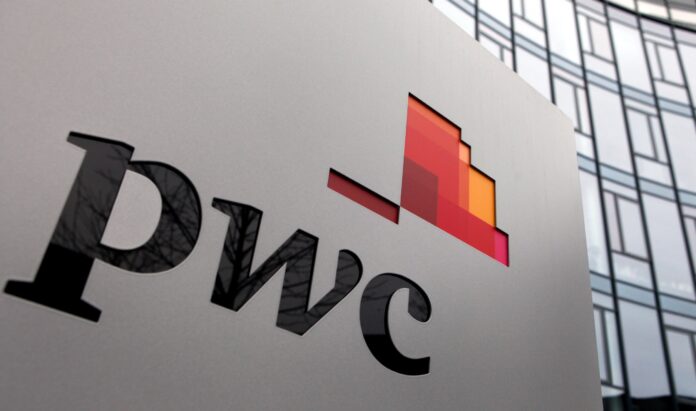
Ghana’s economy in the last few months has seen several changes, including the completion of the Domestic Debt Exchange Programme (DDEP).
The DDEP was successful, with 85% of all eligible bond holders signing up. The government has now moved on to the next phase of restructuring its debt by shifting its focus to bilateral creditors. Inflation has been relatively high, hovering above 50% since
November 2022 and the Cedi which had witnessed a sharp devaluation in the latter half of 2022 has been stable in the last few weeks, though trading at about 60% of its value at the same time last year. On the global stage, there is a lot of uncertainty given the recent collapse of Silicon Valley Bank and Signature Bank in the United States of America. In Europe, the Swiss authorities pulled all stops to avoid the collapse of Credit Suisse, as they facilitated an accelerated buyout by UBS Bank. Global Central Banks, including the Bank of Ghana have been increasing the base lending rates as they try to battle inflation. Dollar
reserves in several developing countries are running low, and the short to medium-term outlook shows declining economic growth rates. Are we seeing the world slide into another economic recession?
In the backdrop of all this, the Government of Ghana is still in discussions with the International Monetary Fund (“IMF”), whom they had approached for an Extended Credit Facility (“ECF”) of about US$3 billion in July 2022. The IMF programme is expected to support the Ghanaian economy by restoring fiscal stability and investor confidence. The government’s sovereign debt restructure is an essential component of a broader macroeconomic plan to restore overall debt sustainability, with public finance experts predicting the debt levels to start dropping to around 55% of GDP by 2028. The IMF bailout is contingent on the government demonstrating its commitment to undertaking fiscal and other structural reforms.
Learning from other countries that have gone through a sovereign debt exchange programme, like Greece and Jamaica, adoption of the DDEP is likely to trigger financial challenges that may threaten the stability of various sectors of the economy markets, making government support necessary, especially for banks identified as systemically important. To its credit, there are plans by the government to extend support in the form of a stabilisation fund. As seen from the swift action of the US and Swiss regulators to resolve
banks considered systemic, the fund would be key to stabilising the financial services sector and instilling confidence in the system to ward off threats of an accelerated economic crisis.
Addressing debt and neglecting consumption may be a zero-sum game – A Greek and
Caribbean experience If we take Greece as an example, their debt restructuring achieved a reduction in the debt, but led to a contraction in consumption, driven by the effects of the austerity measures put in place e.g., cuts in public spending and a decrease in social welfare benefits. This resulted in a decrease in living standards for many individuals, as well as increased poverty and unemployment. Looking further to the Caribbean, Jamaica
underwent a similar debt exchange programme. Initially there was a decrease in disposable income by households as the Jamaican dollar was devalued resulting in inflation. This effect was felt more by low income earners. However, the fiscal space created by reducing the debt repayment burden allowed the government to redirect freed funds to infrastructure
development and spend more on social intervention programmes in the longer term.
Where do you proceed after signing on to the
DDEP?
Having signed on to the Domestic Debt Exchange Programme and taken a haircut on their investments, many Ghanaian corporate and individual investors affected will be going back to the drawing board to assess how to navigate the future. Companies that had investments in the eligible bonds would realise losses in their investment portfolios. This is
an opportunity for corporates to take time to refocus and rethink their survival and growth strategies post-DDEP which would include how to refocus on improving efficiency and reducing any waste in their operations. An assessment of the available resources, prospects both in the short and medium term, while keeping tabs on any opportunities available,
would help in reshaping the strategy in the current environment.
Depending on where your organisation finds itself, whether you will find yourself struggling because of the losses incurred and erosion of capital or you are well capitalised to withstand the losses and have substantial reserves available for investment, will determine the strategic steps you take. The universal approach, however, for both scenarios would entail:
1. Reviewing your cash flow models for robustness while identifying key forecast risks and the most appropriate responses.
2. Modelling different scenarios to determine available options for the business to meet its
short and medium-term financial and strategic objectives.
3. Implementing cost optimisation strategies that will enhance cashflows in the present.
4. Ensuring there are adequate sources of liquidity for the business.
5. Enhancing your risk processes to protect and conserve the resources at your disposal. Fraud risks tend to increase during periods of uncertainty and crisis.
For those with sufficient reserves to withstand the current economic shocks, it may be the best time to scout opportunities in the market and make investments. Industries dealing in commodities, e.g., oil or gold, have been relatively insulated from the currency shocks, probably only incurring losses if they made investments on their excess cashflows in government securities that are the subject of the DDEP.
If they have sufficient reserves to cushion the organisation through the crisis period, they may consider a growth strategy to:
1. Acquire assets or companies that have healthy operational fundamentals but are facing financing challenges. Discounted deals may be available in the market and may provide a strategic fit for such organisations.
2. Invest in technology to improve operations and enhance their efficiency even further given that global trends all point in the direction of digital innovation.
3. Invest further in the business by improving the human resources, machines, or equipment used in their operations that may be available at reduced costs in the market with the anticipated decreased demand. Given the changing global dynamics fuelled by a few things, including the increasing use of Artificial Intelligence, changing work preferences, it would be prudent to assess which current expense areas would deliver the most value.
The cost structures should then ideally be aligned to areas that will deliver the
value and provide desired market positioning. As observed, while the risks and challenges that come with economic underperformance can seem daunting, it also provides an opportunity to reassess strategy and address structural issues that were previously difficult to handle. It can also be an opportunity for organisations with significant cash reserves to look for mergers and acquisition opportunities. The crisis can unite stakeholders in assessing value preservation tools that can be used as the pivot for creating a sustainable future. PwC has gone on this journey with several corporations seeking to build a sustainable and profitable future. We encourage you to reassess your strategy to
weather any effects of the DDEP.









